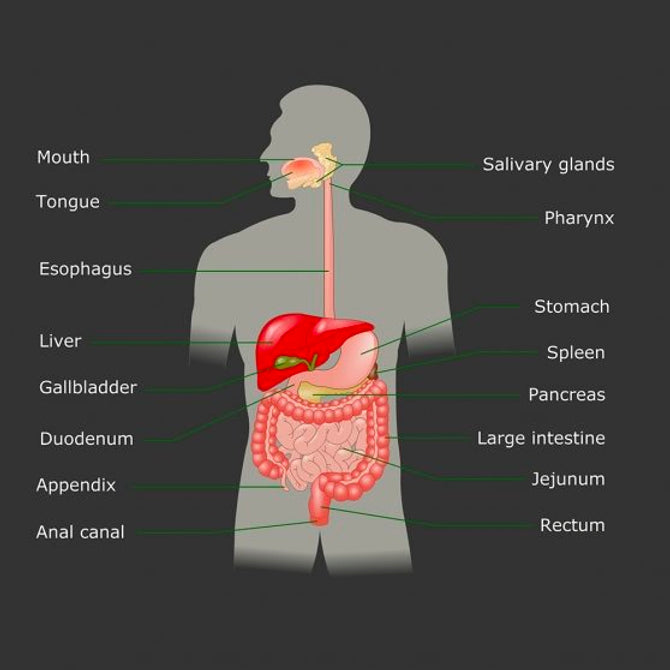The digestive system is one of the most important systems in the body, responsible for breaking down the food we eat into the nutrients our bodies need to function. This complex system involves several organs working together, including the mouth, esophagus, stomach, duodenum, small intestine, and colon (large intestine). The liver and pancreas also aid in digestion but are not included in the alimentary canal.
The purpose of digestion is to take the food that is eaten and break it down into nutrients, which are the basic materials that the body uses. These nutrients can be classified into groups of starch, sugar, fat, protein, minerals, and vitamins. These must pass through four digestive juices - saliva, gastric juice, pancreatic juice, and bile - in order to be prepared for absorption into the bloodstream to be used by the cells.
During a typical lifetime, the digestive system processes between 60,000 and 100,000 pounds of food. Eating a balanced diet is the best way to get all the necessary nutrients for a healthy digestive system. However, it can be challenging to get everything you need from food alone. This is where supplements can be helpful.
Here's a list of essential nutrients and the foods that contain them:
CLASS ONE - HEAT AND ENERGY FOODS:
- Starch: cereals, breads, macaroni, tapioca, certain vegetables
- Sugar: sugar, maple sugar, sorghum, honey, sweet fruits
- Fats: olives, vegetable oils, salad oils, nuts, soybeans, milk
CLASS TWO - BUILDING AND REPAIR PROTEIN:
- Grains: soybeans, peas, beans, lentils, nuts
CLASS THREE - REGULATORS OF BODY PROCESSES:
- Water: pure fruit or vegetable juices, fruit, vegetables
- Cellulose: indigestible matter, bran, framework of fruits and vegetables
- Minerals: bran of cereals, vegetables, fruit, nuts
- Vitamins: the vital spark which activates the other food elements, without which growth cannot occur or continue.
Foods that are high in fiber, such as fruits, vegetables, and whole grains, help to keep the digestive system healthy by promoting regular bowel movements and preventing constipation.
In summary, the digestive system is a complex system that involves several organs working together to break down food and extract nutrients. Eating a balanced diet and maintaining a healthy digestive system is essential for overall health and wellbeing.
While a balanced diet is the best way to get all the necessary nutrients for a healthy digestive system, it can be challenging to get everything you need from food alone. This is where supplements can be helpful. If you're not getting enough of a certain nutrient through your diet, supplements can provide an easy and convenient way to fill in the gaps. However, it's important to speak with your healthcare provider before starting any new supplement regimen to ensure that it is safe and appropriate for you.
---
Speak with your healthcare provider before starting any new supplement regimen to ensure that it is safe and appropriate for you.



